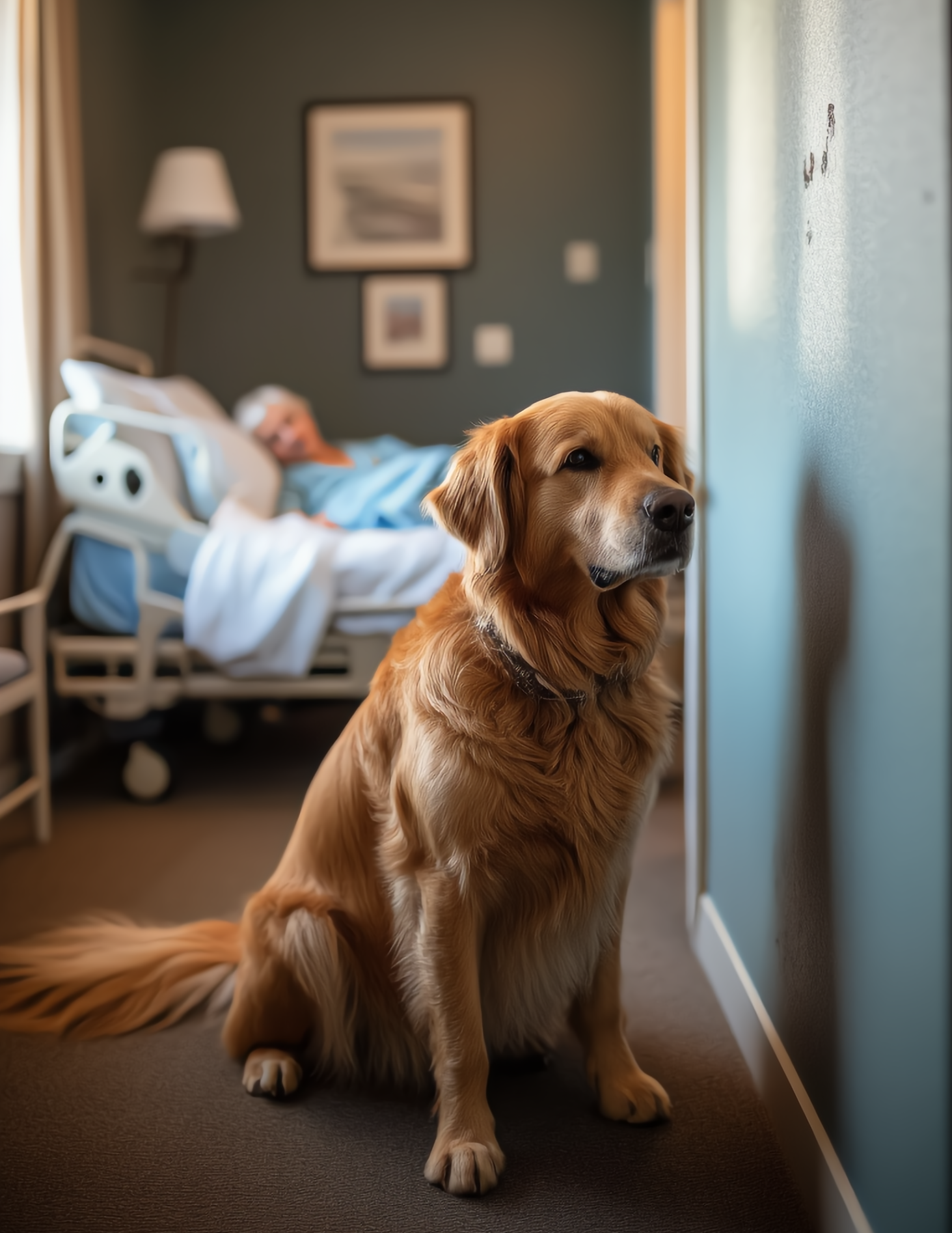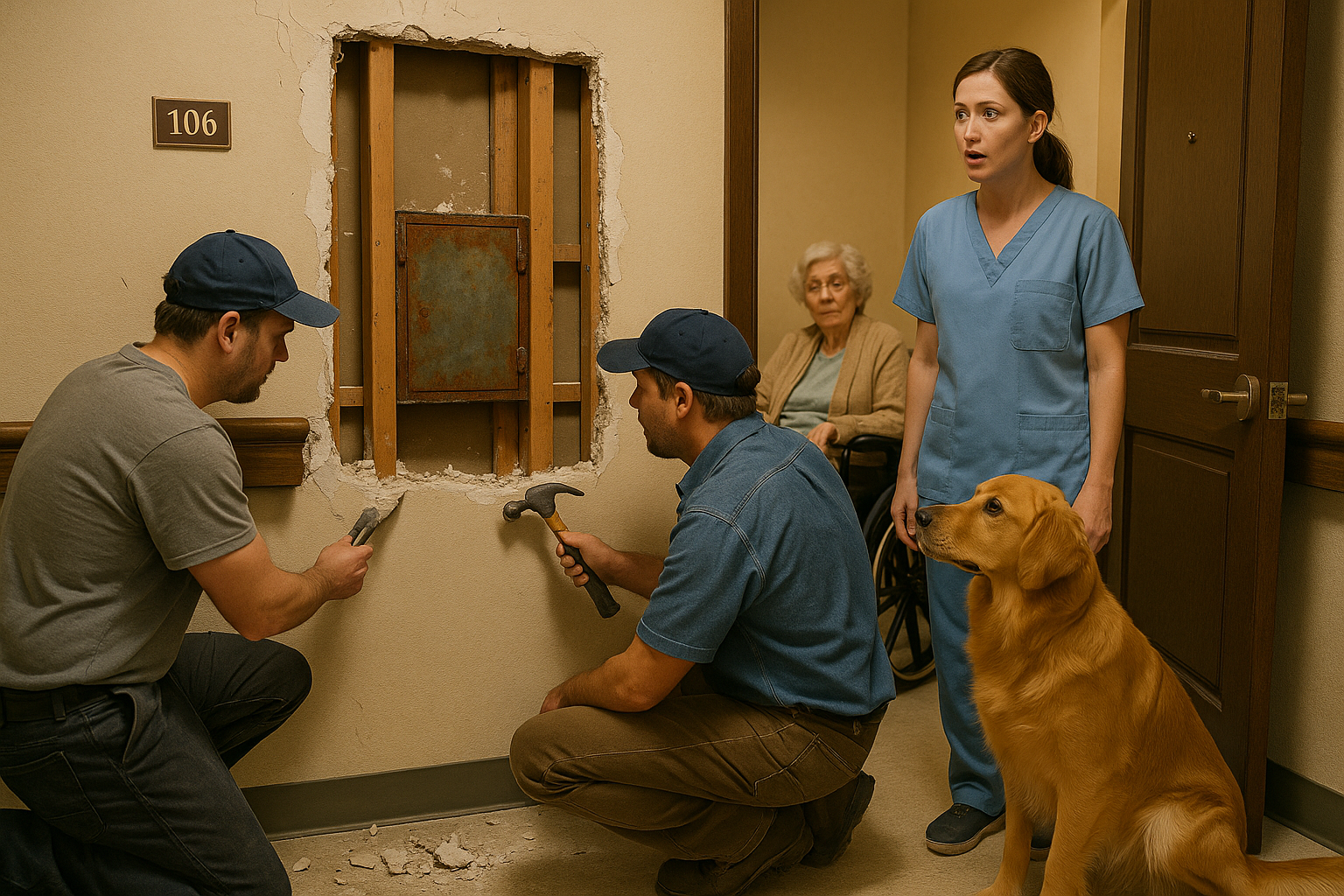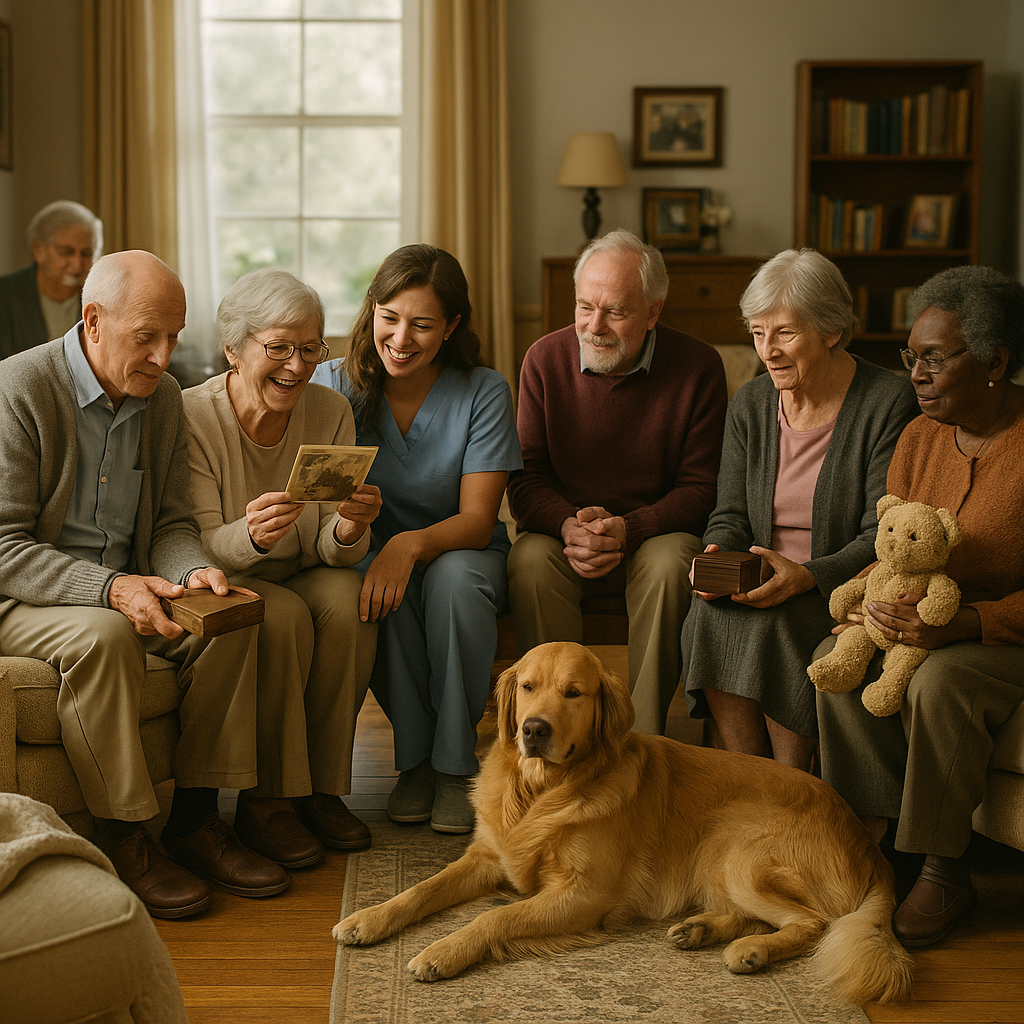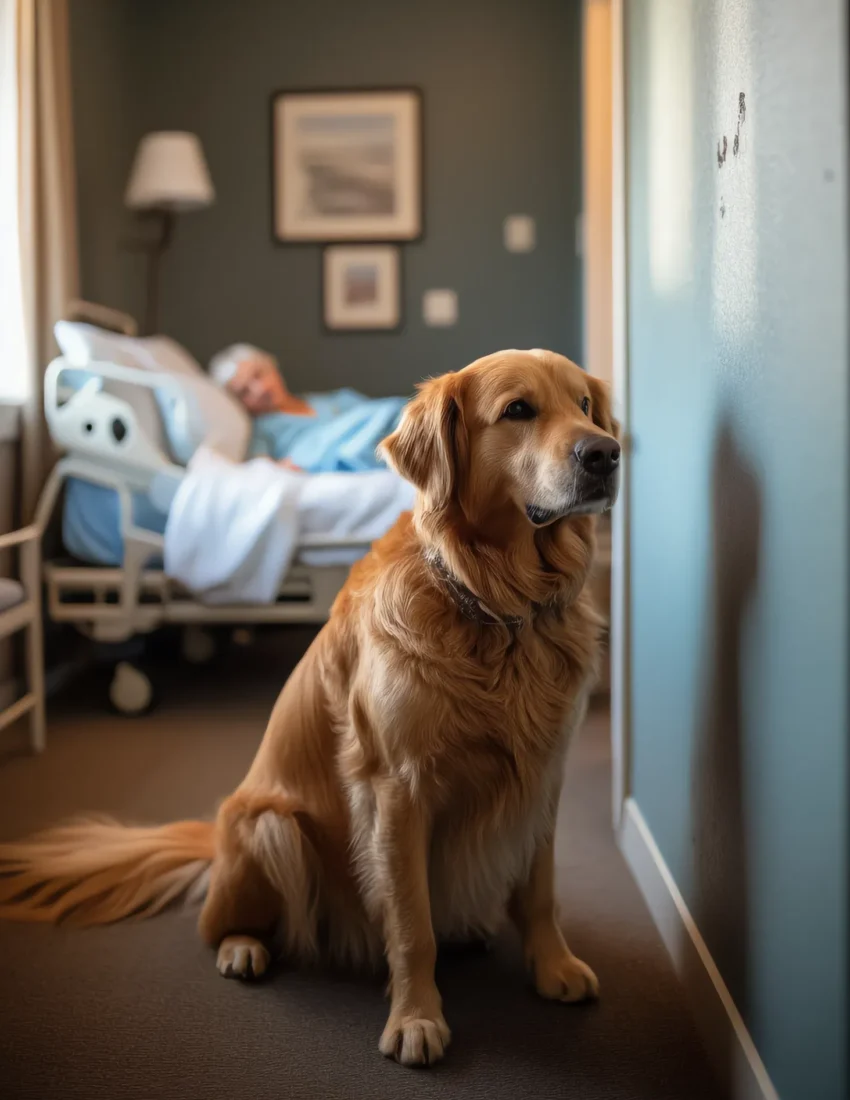I never thought a dog could change the course of my life—let alone the lives of everyone in our sleepy nursing home. But that’s exactly what happened when a scrappy golden retriever named Scout walked through our doors.
I’m Clara Benson, a part-time nurse at Willow Creek Nursing Home in upstate New York. It’s not the most glamorous job, but it’s honest work. The residents here aren’t just patients to me—they’re like family. Most of them don’t get many visitors anymore. Some have children who live too far, others are simply forgotten. That’s why we try our best to make Willow Creek feel like home.

Three months ago, the administrator approved a therapy dog program to help lift residents’ spirits. That’s when Scout came into our lives.
Scout was a rescue—friendly but alert, with eyes that seemed to understand more than any dog should. From the very first day, the residents adored him. Mr. Harris, a gruff retired postal worker who hadn’t smiled in weeks, actually chuckled when Scout dropped his chew toy into his lap. Miss Ellie, who barely spoke due to her dementia, whispered “Good boy” when Scout laid his head on her knee.
But nothing could’ve prepared us for what happened with Scout and Room 106.
Room 106 belonged to Mrs. Evelyn Harper—a quiet woman in her 80s who had suffered a stroke the year prior. She was paralyzed on one side and rarely spoke. Her daughter lived across the country, and though she called every Sunday, she hadn’t visited in almost a year. We did our best to care for Evelyn, but she mostly kept to herself, eyes always fixed on the far wall.

One crisp Tuesday morning, I was walking Scout through the hallway when he suddenly stopped outside Room 106. His ears perked. He sniffed the air, gave one sharp bark, then sat down in front of the door.
I thought maybe Evelyn had food or something interesting in there, so I gave the leash a gentle tug.
“Come on, Scout. Let’s go see Mr. Harris.”
But Scout wouldn’t budge. Instead, he stood up and began pawing at the wall beside Evelyn’s door.
At first, I laughed. “What are you doing, buddy?”
But he kept scratching—slow, insistent scrapes. One of the orderlies passing by gave me a puzzled look. “Maybe there’s a mouse?”

We opened the door to check if Evelyn was okay. She was sitting in her usual spot, eyes glazed, a book closed in her lap. But even she turned her head slightly, her gaze drifting toward the wall Scout had been scratching.
That night, I couldn’t get it out of my mind. The next day, Scout did the same thing. One bark. Then scratching—always in the same spot.
By the third day, I decided to tell maintenance. “Probably just a loose panel or something,” the technician shrugged.
But when they opened the section of drywall Scout had been so obsessed with… everything changed.
Behind the wall, tucked between insulation and beams, was a small metal box—rusted and locked. They handed it to the administrator, who pried it open with a screwdriver.
Inside were several yellowed photographs, letters tied with a faded pink ribbon, and a delicate silver locket.
Evelyn’s eyes lit up the moment she saw the locket. Tears streamed down her face.
“This… this is my sister’s,” she whispered. It was the first full sentence we’d heard from her in months.

The box contained dozens of letters—some written to her sister, Elizabeth, who had died young, others from her late husband during World War II. No one had known these keepsakes existed. Evelyn had hidden them years ago when she first moved into the nursing home, fearing they might be lost or thrown out. After her stroke, she forgot all about them… but Scout hadn’t.
That night, Evelyn didn’t eat alone. The staff took turns sitting by her side as she showed us the letters and photos, her voice gaining strength with every word. It was like watching someone return from a long, silent dream.
Word of Scout’s discovery spread like wildfire. The local news did a story. Reporters came to interview Evelyn, who was now speaking in full sentences, sharing her life story with a confidence we hadn’t seen before.
But it didn’t stop there.
Inspired by Scout’s strange talent, staff began wondering if there were other secrets hidden in the old building. Willow Creek had once been a family mansion before it was converted into a care home in the 1960s.
A week later, Scout started barking again—this time outside the old laundry chute on the second floor. Maintenance reluctantly opened the rusted panel, expecting cobwebs.
What they found instead were three oil paintings, carefully wrapped in cloth and tucked deep inside. Each was signed “A.L.”—the initials of the original estate owner, Abigail Livingston, a renowned artist whose work had been assumed lost. An appraiser estimated their value in the tens of thousands.

The paintings were eventually donated to the local art museum under Evelyn’s name. When she visited the exhibit a month later, the mayor himself came to shake her hand.
Scout had, unintentionally, turned Evelyn into a local hero.
But the most profound change wasn’t in the news stories or the newfound fame. It was in how the residents began to look at themselves—and each other.
People who had been quiet and withdrawn started sharing their own stories. Inspired by Evelyn’s rediscovered letters, we started a “Legacy Box” program. Each resident was encouraged to collect photos, letters, or objects that meant something to them. Every Friday afternoon, they’d sit in the common room and share their memories—sometimes with laughter, sometimes with tears.
Scout always lay quietly in the center of the room, tail wagging, eyes soft.
One afternoon, during one of these memory-sharing sessions, Evelyn turned to me and said, “He reminded me that I had more to say.”
I knelt beside her. “You always had more to say. We just needed to hear it.”
Her fingers brushed Scout’s golden fur. “He helped me remember who I was.”

Months passed. Seasons changed. Scout became an honorary resident. The administrator even had a small bed and plaque made for him: “Scout, Guardian of Stories.”
When Evelyn passed peacefully in her sleep that winter, her room was filled with sunlight, the locket on her chest, and Scout asleep at her feet.
At her funeral, the entire staff attended. Residents, family, even strangers who’d read about her story in the newspaper came to pay their respects. Her daughter flew in from Seattle and spoke through tears. “You all gave my mother the best chapter of her life.”
I glanced at Scout, sitting quietly beside the casket, as if he understood.
And maybe he did.

Today, Scout is still with us—older now, a little slower, but no less alert. Sometimes he still barks once and scratches at a door. Every time he does, we pause. We listen.
Because now we know—when Scout barks, he’s trying to tell us something.
And sometimes, what’s hidden behind the wall isn’t just a box or a painting.
Sometimes, it’s a memory waiting to be found.
Sometimes, it’s a life waiting to be remembered.



